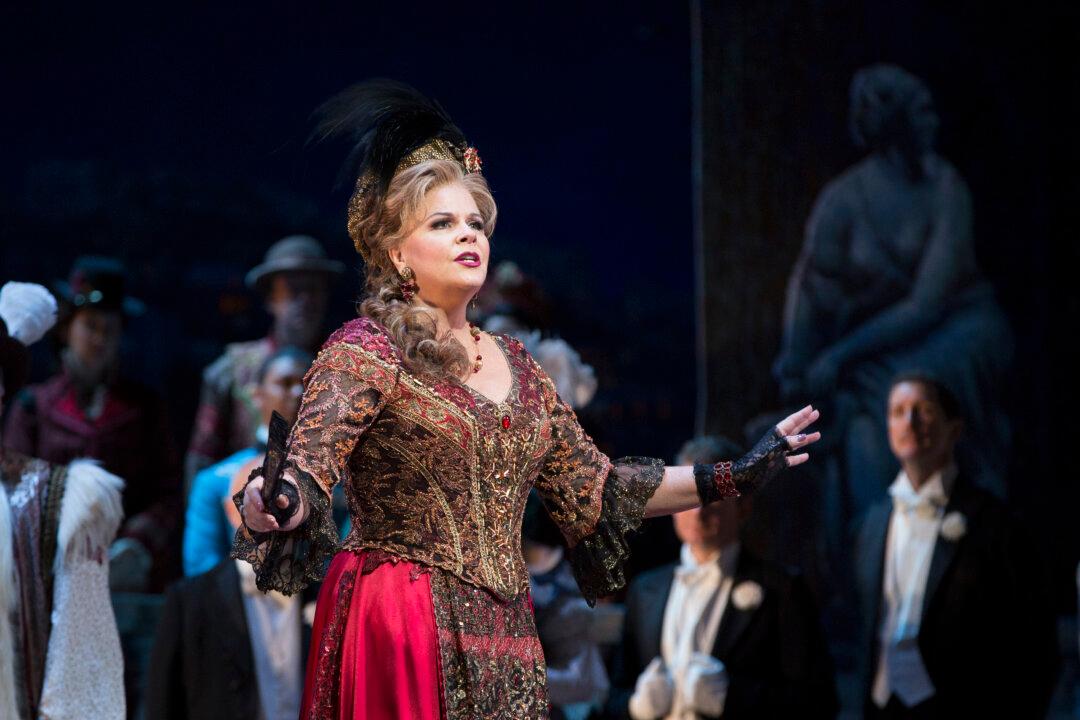NEW YORK—Although operetta is usually thought of as a 19th-century form, Franz Lehár’s “The Merry Widow” (“Die Lustige Witwe”) premiered in 1905, and the composer continued to create popular works in this genre until the early 1930s.
“The Merry Widow” is back at the Metropolitan Opera, retaining its fizzy production by director-choreographer Susan Stroman (of “The Producers,” “Contact,” and “Crazy for You”) but with a new star in the title role: Susan Graham.






